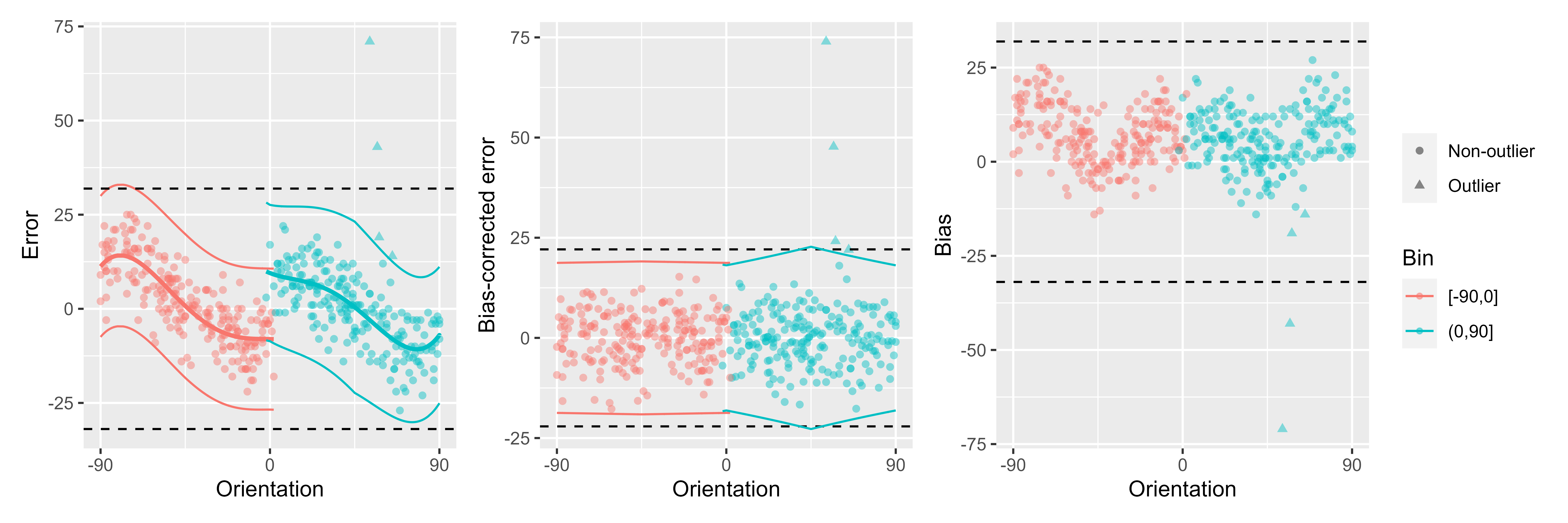remove_cardinal_biases, see the help
files and the
vignette for an example use case.

circhelp is a small helper package for circular data
analyses in R, particularly useful for cognitive studies on orientation,
motion direction, and other circular features. The package contains
functions for descriptive statistics for circular data (computing means,
SD, and skewness), angular differences, and correlation. It also
includes a function to correct for cardinal biases in the human
estimates of circular features (e.g., orientation).
You can install the current version from GitHub with:
# install.packages("devtools")
devtools::install_github("achetverikov/circhelp")Most functions are self-explanatory.
library(circhelp)
#> Loading required package: data.table
#> Loading required package: ggplot2library(mgcv)
#> Loading required package: nlme
#> This is mgcv 1.9-1. For overview type 'help("mgcv-package")'.# compute a set of descriptive statistics
x <- rnorm(500)
circ_descr(x)
#> $mu
#> [1] 0.07084994
#>
#> $sigma
#> [1] 0.9691056
#>
#> $skew_pewsey
#> [1] 0.0118935
#>
#> $skew_fischer
#> [1] -0.04671673
#>
#> $rho
#> [1] 0.6252631
#>
#> $skew_rel_to_zero
#> [1] 0.03426532
# compute difference in orientations
a <- 5
b <- 170
angle_diff_180(a, b)
#> [1] 15
# compute difference in 360° space (e.g., motion directions)
angle_diff_360(a, b)
#> [1] -165
# compute correlation between angles
data <- rmvn(10000, c(0, 0), V = matrix(c(1, 0.5, 0.5, 1), ncol = 2))
circ_corr(data[, 1], data[, 2])
#> [1] 0.4392524The only (somewhat) complicated function is
remove_cardinal_biases, see the help
files and the
vignette for an example use case.
